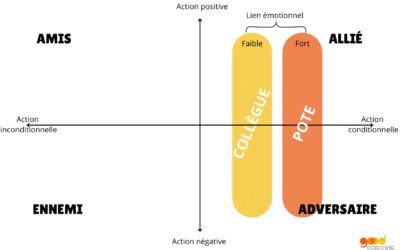Professor Robert Baron of Rensselear Polytechnic in New York interviewed 108 employees of a large food company about their perceptions of conflict in the workplace. They identified and ranked 14 sources of conflict. Of these, poorly expressed negative feedback was ranked as more damaging than a lack of financial resources or even territorial disputes.
The way in which management communicates negative feedback is very impactful. It can stifle innovative ideas at the very time when the company needs innovative intelligence the most.
On the other hand, a lack of critical thinking about new ideas can also be problematic.
Take the case of the famous Palo Alto Research Center (PARC) at Xerox. Many of its innovative ideas for microcomputers came out of this centre. Yet no significant financial results came out of it. Others, such as Steve Jobs, have taken some of these great ideas and turned them into profitable projects. Why did PARC fail as a source of revenue for Xerox?
The problem with PARC was that the culture was too focused on innovation. The profit issue was not sufficiently studied and criticised.
To summarise, how can leaders find the right balance between motivating innovation and ensuring the bottom line?
Here are three suggestions that we have shared with our clients.
Remove the “tone” in “your idea”.
A useful first approach is to create a scorecard for new ideas that prevents leaders from shooting the messengers with “This sucks” or “You’re wasting our time”.
This scorecard can be very simple: “On a scale of 0 to 10 for creativity, I give a 7. On a scale of 0 to 10 for the ability to generate business, I give a 2. Is there a way to change the idea so that the opportunity to create value goes to a 6?
You will notice that the word “you” is never used.
A scorecard method allows staff to understand your criteria for evaluating new ideas. It provides a predictable framework. Because of this predictability, you avoid provoking reactions of the type “But NOTHING can please him??!!”
The way you react to bad ideas sets the framework for the future of good ideas
If you work in a research-intensive sector, such as the pharmaceutical industry, you know that the vast majority of new ideas deserve to die. However, the learning that accompanies the treatment of bad ideas creates the path for practical and innovative future approaches.
For example, we came across a leader whose reaction to a bad idea was a blank stare for three seconds, no comment, and then ignore the person until the meeting was over. Given this reaction, why would a colleague risk presenting new ideas?
As a leader you are of course under no obligation to accept bad ideas, but you can still express gratitude to the person who does. Your goal is to create fertile ground for future ideas.
We recommend to our clients a “Here’s what I like and here’s what needs work” type of script.
For example:
“What I like about this idea is that it addresses an old problem in our sector in a radically new way. What needs to be developed are the concrete steps that will lead our customers to change their habits. What would that cost?
Notice that the word “you” never comes up. The emphasis is on the idea.
Forcing yourself to respond to ideas you dislike in a framed way helps you avoid the kind of blanket condemnation that makes your department or company known as the place where new ideas are buried.
If, when looking at a proposal, you can’t find a single thing you like, we suggest avoiding giving feedback, at least in the first instance. Give yourself time to reflect. Your first judgment may not have been the right one.
Delegate your scepticism
A third approach to giving feedback on new ideas is to delegate your scepticism. There are two ways to do this:
a) Appoint the devil’s advocate for the team. This means that you ask one member of your team to play a specific role during that meeting. And that role is to be the most sceptical person on earth.
Rotate this role in every meeting about innovative ideas.
b) A second way to delegate criticism is to dismantle the hub and spoke system you may have created.
In this type of hub-and-spoke system, the boss is the core and staff with new proposals systematically go through him for approval or disapproval. They do not necessarily need to discuss it with colleagues in other departments of the company.
The ‘core and spokes’ system increases the importance of the boss and reinforces the silo mentality of the team members.
Consider the following idea: before submitting each new idea to you, the employee should share the idea with two peers outside their area of expertise. In this way you will have delegated the criticism and dented the silo mentality.
Your critical role as a leader.
These suggestions are to replace a knee-jerk reaction with a structured approach to handling negative feedback.
A knee-jerk reaction can be interpreted as an implicit insult to the person who presented the idea. It can also be interpreted as a professional disqualification of the person.
This may not be your intention, but this kind of negative feedback kills innovation. Avoid spontaneity. Think of a structured approach, such as one of the three suggested above.
Our proposals are intended to create a climate that allows for a balance between innovation and criticism.
At the beginning of this article we quote Professor Robert Baron’s study. In it, he subjected a group of students to destructive criticism of a task they had completed. By “destructive” we mean that the feedback was general (“it sucks”) and the poor performance was attributed to personal shortcomings (“you seem to lack attention to detail”).
After being exposed to these criticisms, the students were asked to perform a new task. On this task, the students set less ambitious goals than those who had received no feedback or positive feedback.
This reaction can also be found in companies: by criticising people unthinkingly, we create a culture of fear.




